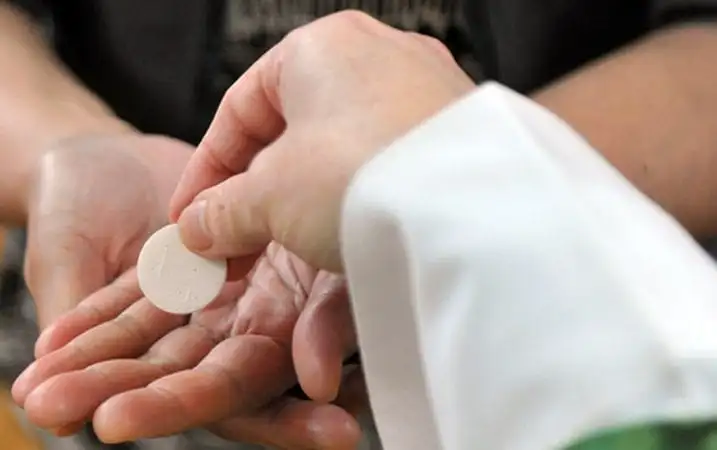Archbishop Bruno Forte of the Archdiocese of Chieti-Vasto, Italy, has recently issued a directive that has stirred controversy among the Catholic faithful. According to a report from the Italian blog Messainlatino, the Archbishop has instructed his priests not to distribute Holy Communion on the tongue and to refrain from placing holy water in the fonts of churches. This decision has raised concerns among Catholics who value traditional practices and wish to approach the Holy Eucharist and holy water font in a manner they consider most reverent.
Background: On April 20, 2023, Mgr. Fabio Iarlori, Episcopal Vicar for Religious and Referent of the Priestly Area, released a statement on behalf of Archbishop Forte, stating that due to the ongoing Covid-19 situation, it is deemed appropriate to continue certain practices within the Archdiocese of Chieti-Vasto. These practices include the exclusive distribution of Eucharistic communion on the hands and the removal of holy water from the fonts. While the news was not initially published on the archdiocese's website, confirmation was obtained through email correspondence with the Archbishop's Secretariat.
Contrasting Views: It is important to note that these restrictions imposed by Archbishop Forte do not appear to be universally enforced throughout the entire archdiocese. Some churches still allow the distribution of Holy Communion on the tongue and maintain holy water in the fonts, demonstrating a pastoral sensitivity that acknowledges the faithful's desire for a more traditional approach to worship. Nonetheless, the fact that these restrictions exist within the archdiocese has left many Catholics feeling frustrated and deprived of their preferred mode of worship.
Legal and Canonical Considerations: The decision to deny Holy Communion on the tongue contradicts the Church's universal law, as outlined in the General Instruction of the Roman Missal and the Code of Canon Law. These sources clearly state that the faithful have the right to receive Holy Communion either on the tongue or in the hand, at their discretion. Additionally, the Congregation for Divine Worship and the Discipline of the Sacraments, in its document Redemptionis Sacramentum, reaffirmed the right of the faithful to receive Holy Communion on the tongue.
Medical Opinions: Furthermore, bans on receiving Holy Communion on the tongue during the Covid-19 pandemic go against the opinions of medical professionals in various countries. Several doctors, including a group of 27 in Germany and 21 in Austria, have stated that there are no medical reasons to prohibit Communion on the tongue. In fact, some medical experts have even argued that receiving Communion on the tongue is safer than in the hand. These medical opinions cast doubt on the necessity of the Archbishop's directive and call into question the justification behind such restrictive measures.
Hope for Reconsideration: In light of the concerns raised by the faithful and the existence of alternative views within the archdiocese, it is hoped that Archbishop Forte will reconsider his decision. Many Catholics long for a return to their preferred mode of worship and seek an inclusive approach that respects their legitimate sensitivities. By revisiting this directive, the Archbishop can promote unity, foster a sense of reverence, and address the aspirations of the faithful.
Free Speech and Alternative Media are under attack by the Deep State. Chris Wick News needs your support to survive.
Please Contribute via GoGetFunding


